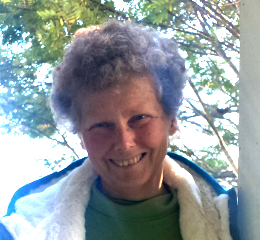Colleen Hanrahan

Colleen Hanrahan is a registered social worker and a non-practising lawyer. She is Managing Director of the Institute for the Advancement of Public Policy, Inc., a consulting firm in St. John’s which she established in 1998. Her work is focused is on undertaking research and providing policy advice in the social, legal, and health sectors. She has conducted reviews and evaluations on a wide array of topics ranging from mental health services to housing and homelessness to court services. Colleen is currently working on her doctoral dissertation in Public Policy and Public Administration by distance from Walden University in the USA, which she describes an yet another adventure!
How and why did you decide to attend Memorial for your undergraduate degree?
MUN was a natural choice for me. I lived and went to school here in St. John's and many of my friends were going there.
What drew you to study political science and sociology?
My Grade 6 civics teacher played a big part in it. She introduced me to it and I knew that this was what I wanted to study when I went to university. It goes to prove what an influence a teacher can have on a child’s life.
When I was at Memorial I took a sociology course as an elective, and one course led to many more. I really enjoyed them.
It wasn't until my last year of undergrad that I ventured into taking some electives in the School of Social Work. I found social policy and community development particularly interesting and so after graduating with a BA, I went on to graduate school in social work at the University of Toronto with a concentration in those subjects.
That's a long answer to how I got here but looking back, all my interests are all stitched together and are rooted in those political science and sociology courses I started at MUN…and Grade 6 civics class!
Do any particular memories stand out from your time here as a undergraduate student?
Easy question! I met my husband in my fourth year in a political science class so I have to acknowledge that encounter as the outstanding memory…which has extended to 34 years…and hopefully more to come!
Really, it was a period of growth and learning. My undergraduate years were all of wonderful, confusing, stressful, and fun… as I learned about significant events in the politics and changes in our society. Also, I met so many people from other parts of the province, Canada, and the world which expanded my horizons!
You’ve worked as a university lecturer, a lawyer (both in government and in private practice), as director at the NL Housing Corporation. What has driven you throughout your professional life to continually educate yourself and focus your work in areas of public policy, etc.
I suppose I would have to say curiousity about the world around me. All
through my professional life, it seems that one interest or activity has led to
another. There is always something to learn. It's what makes life interesting.
You’ve recently renovated and restored the former Holy Trinity convent in Witless Bay. What inspired you to embark on such a project and what are you plans for the facility?
My interest in heritage buildings was sparked by an assignment in a sociology course. I recall students were expected to go to the downtown area and describe a streetscape. This was in the mid-1970s before the downtown was rehabilitated. Although there were exceptions, it was rundown and not as it is today. Mansard roofs and bonneted dormer windows were not what first caught your eye...but I noticed the beauty.
My mother’s family has lived in Witless Bay since 1850s, or earlier. While visiting my aunt I learned that the Sisters were closing the convent. Rumours were circulating that the building was to be torn down. I wrote a letter to the congregation expressing interest in the building. After my proposal was accepted I bought the building.
The original use of the building in 1860 was as a convent and school. My plan was to reuse the building as a meeting centre with overnight accommodations. The exterior is restored and I have to turn my mind to the interior. The field school for the Department of Folklore was an opportunity to use the building as it was first used and to test the concept today. Now I am planning for its future use.
What response do you have for people who diminish the BA degree?
An arts degree helps a student develop critical thinking. It is an important skill.
There are many dimensions to our world that cannot be explored through one lens. The arts provides an important lens.
What’s the best piece of advice you ever received?
When I was frustrated while attempting to complete a task my father used to say “There is no such thing as “can’t”. He taught me that with a positive attitude and a good work ethic you can do whatever you set your mind.
What advice would you give a student starting out who is unsure of what to study?
Be open. Explore different areas of study and find the subject you most enjoy. Then study becomes interesting, not work. All else will fall into place.
What would people be most surprised to learn about you?
Once I went white water rafting in the Yukon—it was thrilling!
What’s your favourite place to visit in Newfoundland and Labrador?
Through my work assignments, I have been fortunate to have travelled to most areas of the island and Labrador. I do not have one favourite place but on a sunny, warm/hot summer’s day, it would be the front garden of the convent in Witless Bay overlooking the ocean.
What are you reading right now?
My book club meets in a few weeks time. The assigned book is The Hare with the Amber Eyes by Edmund de Waal which I am just beginning to read.